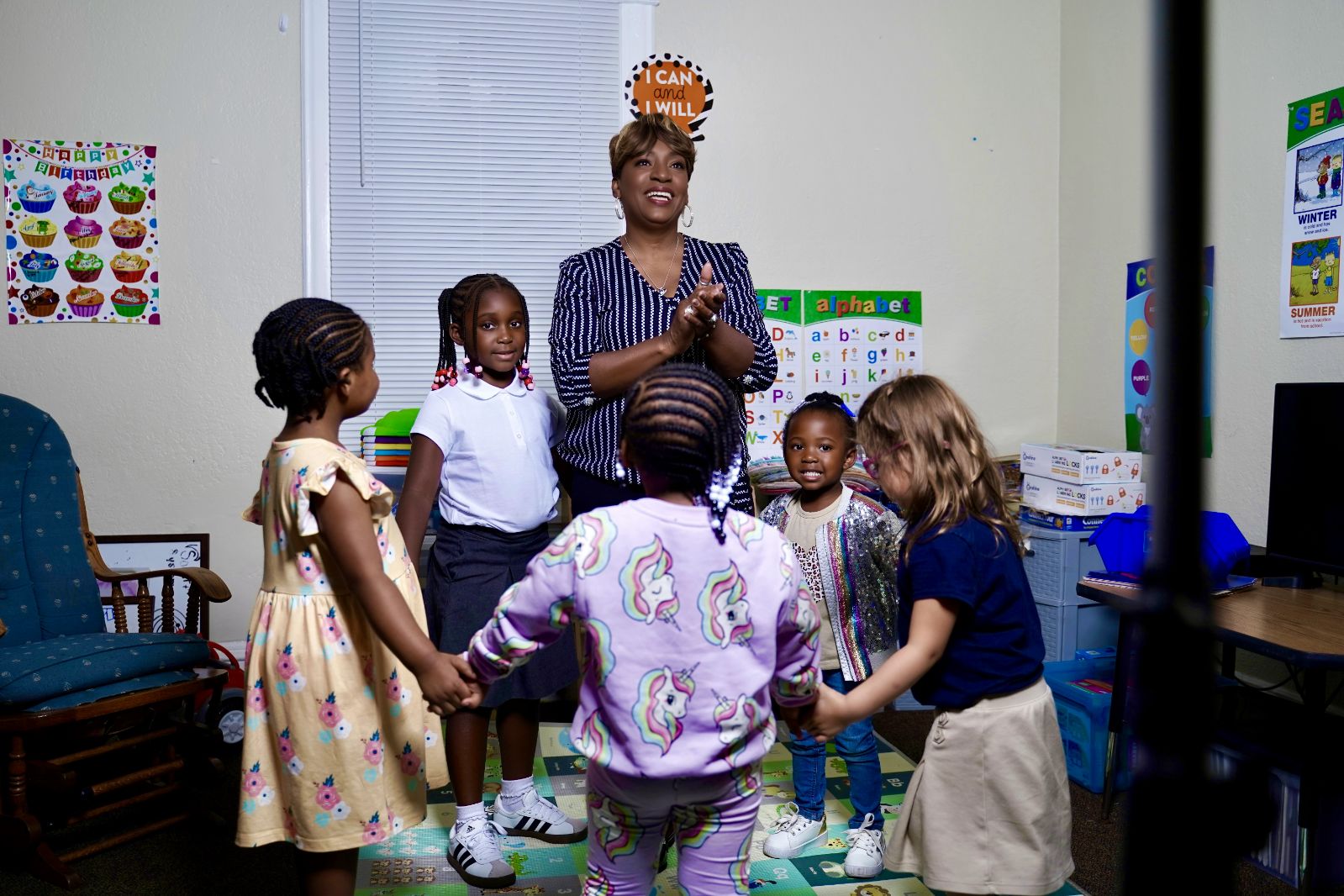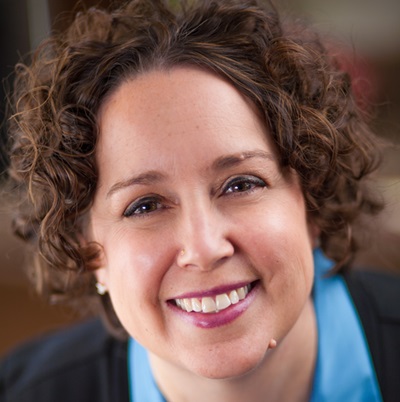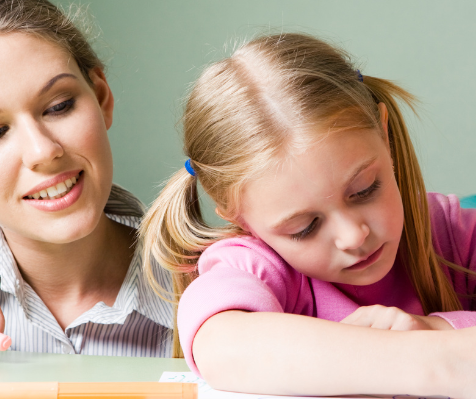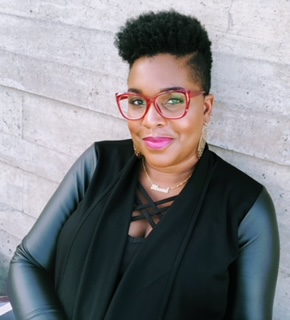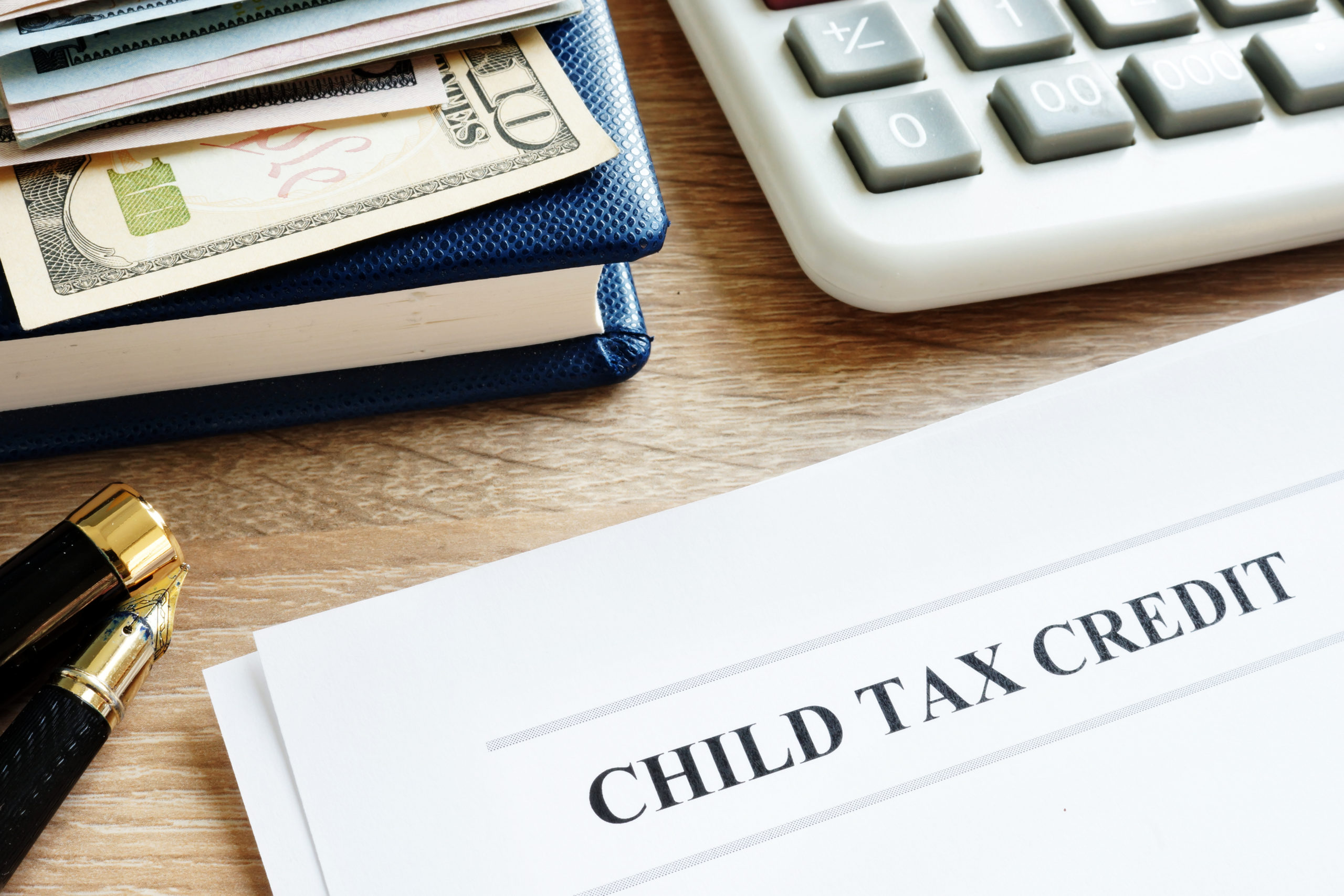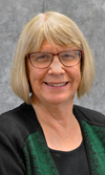
“This is the biggest challenge we face: Can we build an equitable system that prepares all children for kindergarten, or will we continue to shortchange those experiencing opportunity gaps? We know what to do, we just have to do it.”
-Barb Yates, President and CEO of Think Small
This past year marked the 50th anniversary of the founding of Think Small. As we’ve grown through myriad programs, partnerships, and initiatives, our guiding principle has always been to support young children and their caregivers. We reflect on our past 50 years of change and determination and look forward to being at the forefront of providing services, resources, and advocacy for early childhood education in Minnesota.
A History of Innovation
In 1971, the nonprofit Greater St. Paul Council for Coordinated Child Care, known to the public as Toys ‘N Things, began with the creation of a mobile toy lending library that visited family child care homes. While children enjoyed supervised play on the bus, providers participated in training sessions aimed at improving their quality of care.

The Toys ‘N Things Training and Resource Center was a humble, colorful beginning for a group that would in time join with four other organizations—each dedicated to affordable and accessible early childhood care and education.
By 1973, we were able to offer services such as technical assistance, parent referrals, advocacy on behalf of parents and providers, and new child care support program services. During that year, membership grew to 1,323 parents, centers, family child care homes, and citizens.

“While we have undergone many changes and transitions since our start in 1971, we have always represented excellence and leadership on behalf of our youngest population.”
– Janet Ward, Customer Service Leader at Think Small
Janet Ward, Customer Service Leader, marked 37 years of service in 2021 and says we have always centered our main mission. “To see how much growth has happened is really astonishing,” says Ward. “When I started in 1984, Toys ‘N Things Press had just published its first non-grant, independent book, ‘Open the Door Let’s Explore’ by Rhoda Redleaf and had been selected as one of four sites in the nation to conduct field tests for the accreditation program for child care centers developed by the National Association for the Education of Young Children (NAEYC).”
Success and growth continued through the 1980s for our organization, which changed its name to Resources for Child Caring (RCC) in 1982. In 1985, RCC made Minnesota a leader in accreditation efforts when it received funding from the Bush Foundation to offer NAEYC’s accreditation program for child care centers statewide. Today, Minnesota leads the nation in the number of child care centers accredited by the National Association for the Education of Young Children (NAEYC), and we at Think Small have played an integral role. Then, in 1987, RCC worked with Greater Minneapolis Day Care Association to establish a helpline for family child care providers and to develop written support materials, a neighborhood mentoring program, and recruitment and support for providers servicing communities of color.
As the 1990s began, innovation drove us forward as Toys ‘n Things Press transitioned away from providing toys to focus on book publication. The change led to a new name, Redleaf Press, honoring author and longtime staff and board member Rhoda Redleaf. RCC celebrated 25 years in 1996 and piloted a home-visit program that acquainted providers with safety equipment and RCC’s resources and training programs.
Moving forward, we continue to adapt and usher in multiple advancements and milestones. In the early 2000s, we administered Saint Paul Early Childhood Scholarships, a four-year pilot funded by the Minnesota Early Learning Foundation. In 2007, we helped establish (and continue to support) Minnesota’s Parent Aware Ratings System for connecting parents to high-quality child care providers. Then, in 2011, we merged with Minnesota’s largest (and only) statewide advocacy organization, Ready4K, which then allowed us to further move people and policies forward in positive ways for children and families.
We changed our name in 2012 to Think Small, a name that’s contemporary, differentiating, and reflective of our intense focus on early childhood. In 2019, we incorporated a new Strategic Plan for 2019 to 2023, outlining measurable goals in early childhood quality, early childhood access, parent engagement, policy, and data development. Our organization works hard to balance out large-scale efforts by improving individual lives through scholarships for low-income families and small business training for child care providers. Furthering this plan, in 2020, we launched Think Small Institute (a division of Think Small) which offers child care providers virtual professional development opportunities for licensure and accreditation, along with ongoing support to create learning-rich early childhood environments that score high ratings and help close achievement gaps.
At the end of 2021, Think Small numbered over 100 employees strong—each of us individually invested and collectively contributing to ensure that all Minnesota children are ready for kindergarten.
Opportunities for Advancing Equitable Change
The programs that Think Small has piloted over the decades have become reliable, government-funded services, and it’s worth pausing to remember how each one began as an experiment. As Barbara Yates, President and CEO of Think Small, puts it, “What we have a history of doing is innovating solutions to problems in caring for children and helping scale those solutions.” A Bush Foundation grant launched Think Small’s rapid accreditation of centers in the 1980s, and we administered federal funding in the 1990s that made sliding fee scales for child care for low-income families the norm for all Minnesota counties. In the new millennium, state, and philanthropic funding empowered Think Small to help launch, evaluate, and sustain the Parent Aware System. Through it all, Yates says, “We continue to focus on access and quality for children, particularly those who may experience opportunity gaps.”
Those opportunity gaps have moved to the forefront of early childhood education and care in recent years. Minnesota is known to have one of the nation’s widest achievement gaps, with children of color lagging behind their white peers throughout K-12 and entering adulthood at a disadvantage. Education in the pre-kindergarten years can do more to close that gap than interventions at a later age can. This is reflected in the Think Small Theory of Change: “If children have access to high-quality child care with sufficient dosage they will be ready for kindergarten.” Yates says, “One of our biggest recent changes is in embracing the population of all children being ready for kindergarten, with specific focus on reducing opportunity gaps through high-quality child care.”
Our organization continues the mission of increasing high-quality child care for at-risk youth not only through early learning scholarships and Parent Aware ratings, but also through professional development for educators.
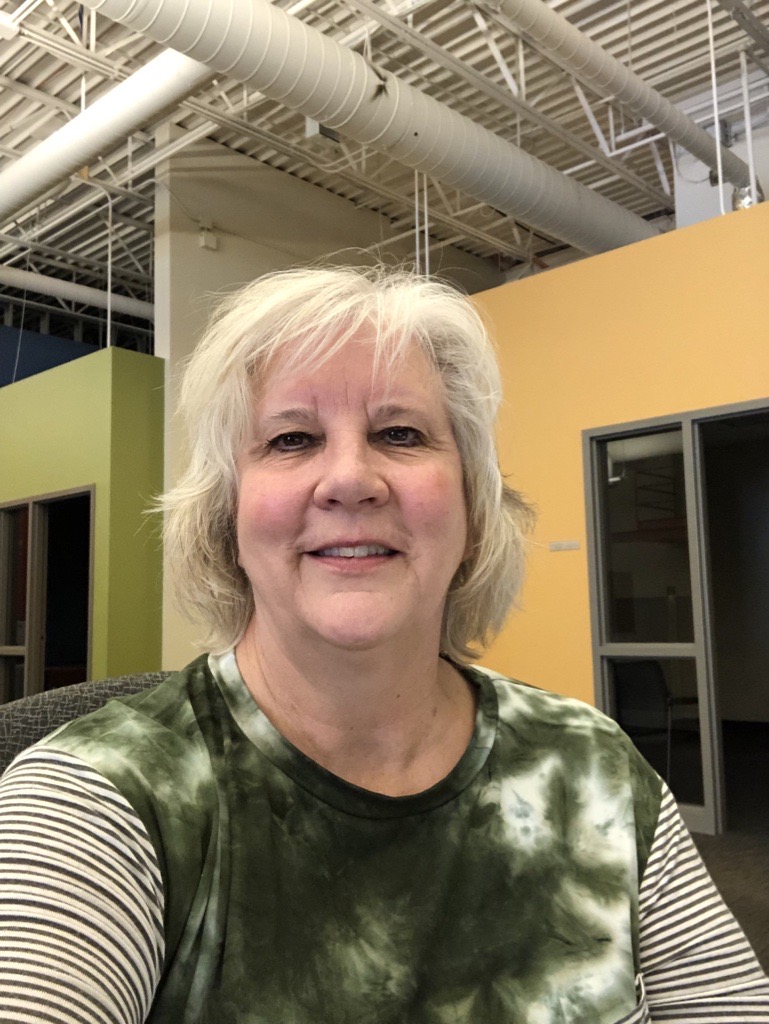
“Our leaders drive policy makers to pay attention, we inform the EC community about the importance of those early developmental years, and we implement for change.”
– Wendy Nielsen, Strategic Leader in Professional Development at Think Small
Wendy Nielsen, Strategic Leader in Professional Development at Think Small, celebrates 31 years in 2022 and notes the lasting influence of Think Small in early child hood education and her passion for the mission.
She also believes that the dedication and risk-taking that our organization has done over the last 50 years to advance quality in early childhood is astounding. “Our leaders drive policy makers to pay attention, we inform the EC community about the importance of those early developmental years, and we implement for change,” adds Nielsen.
An Advancing Partnership
The past two years have shown us that the world is unpredictable, but partnership will continue to be the heart of our success, and will ready us for the future. “We are truly at a make or break time for child care—program closures and staff shortages have us at a crisis,” Yates says, referring to the effects of the pandemic on an already underpaid and understaffed child care workforce. As she asserts, “We must seize this opportunity to build a quality, equitable system that works better for children and their families.”
This crisis has drawn the attention of our national leaders, who recognize this time of opportunity and have responded with the Build Back Better Act. This historic proposal would provide transformational funding to allow more young children and families to access quality early care and education programs like the ones Think Small supports. The future of the legislation remains unclear in January 2022, and we will continue our important work regardless. If a large-scale plan does pass, it is certain that Think Small will be involved in implementing such an ambitious project, which directly ties into our mission and vision.
Think Small is expanding the reach of more than 1,000 online classes and events into “child care deserts”—areas in over 80 percent of Minnesota where supply can’t meet demand—and availability in languages other than English. Support from partners and generous community members means that we can continue our half-century tradition of innovation with high-quality trainings and publications, scholarships for low-income families, and rapid responsiveness in a racially charged world still facing a pandemic.
As Yates explains, “Think Small is well aware that we will not be able to reach our population level result of all children being prepared for kindergarten by ourselves. Our current partners include early childhood providers; school districts; state agencies; policymakers; researchers; promise neighborhoods; other nonprofits working in the field of early childhood, education, health, human services, and homelessness. This list will grow as we develop our work and invite others to share our population level result of all children being prepared for kindergarten.” Yates emphasizes that this is the time for that list to grow so that the next 50 years see as much or more positive change for all Minnesotans as the past 50. She concludes, “This is the biggest challenge we face: Can we build an equitable system that prepares all children for kindergarten, or will we continue to shortchange those experiencing opportunity gaps? We know what to do, we just have to do it.”


